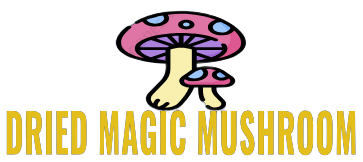Magic Mushrooms, Mushroom
Magic mushrooms could treat PTSD and depression with no side effects
Small doses of magic mushrooms could help treat mental health conditions like PTSD, according to a new study.
Experts at the Institute of Psychiatry, Psychology & Neuroscience at King’s College London found that small amounts of psilocybin does not have short of long-term negative side effects in healthy people.
The authors of the small-scale study, published in The Journal of Psychopharmacology, found that psilocybin can be safely administered in either 10mg or 25mg doses.
Researchers believe that this initial trial, which had just 89 participants, could be a first step in proving the safety and feasibility of psilocybin as a treatment for mental health conditions like PTSD and depression.
It is the first time a trial of this kind has been conducted on humans.
During the study, 60 participants were given either 10mg or 25mg of the drug, while the 20 in the control group were given a placebo.
Both groups also received support from psychotherapists and were monitored over 12 weeks, during which time they were asked to track changes to their attention spans, memory, ability to plan and ability to process emotions.
Dr James Rucker, from the National Institute for Health Research and a lead author of the study, said the finding that the drug had no negative side effects shows that its possible use in medicine should be explored.
“This therapy has promise for people living with serious mental health problems, like treatment-resistant depression and PTSD,” Rucker said.
“They can be extremely disabling, distressing and disruptive, but current treatment options for these conditions are ineffective or partially effective for many people.”
The research was carried out in partnership with Compass Pathways, a pharmaceutical company which is currently developing a psilocybin therapy. It is now carrying out a second study, which explores the efficacy of psilocybin in people living with PTSD and depression.
The use of magic mushrooms in modern medicine may also be effective in the treatment of migraine disorders.
In 2020, a small study by researchers at Yale found that a single dose of psilocybin reduced migraine frequency by 50 per cent for at least two weeks.
In the UK, magic mushrooms are illegal under the 2005 Drugs Act. While it is legal to buy spores of the mushrooms, which do not contain psilocybin, possession of mushrooms is punishable by seven years in prison.
One woman, who suffers from cluster headaches, has resorted to growing her own magic mushrooms illegally.
Speaking to The Herald anonymously, the woman said that after taking five doses, beginning in August 2021, her headaches have reduced.
“It annoys me that I’m having to do illegal things,” she said.
“Twice a GP prescribed me drugs and they are sitting in my bathroom cabinet unopened because I looked into them on forums and the side effects were horrendous. There are no side effects with psylocibin.”
Brain Research UK, which is funding a new study on the cause of cluster headaches, said it “would consider” researching the effects of psilocybin.
“We aren’t funding any research on psilocybin but we are response driven,” research manager Katie Martin said.
“If someone applied to us for research into the effects of mushrooms, we would consider it.”
